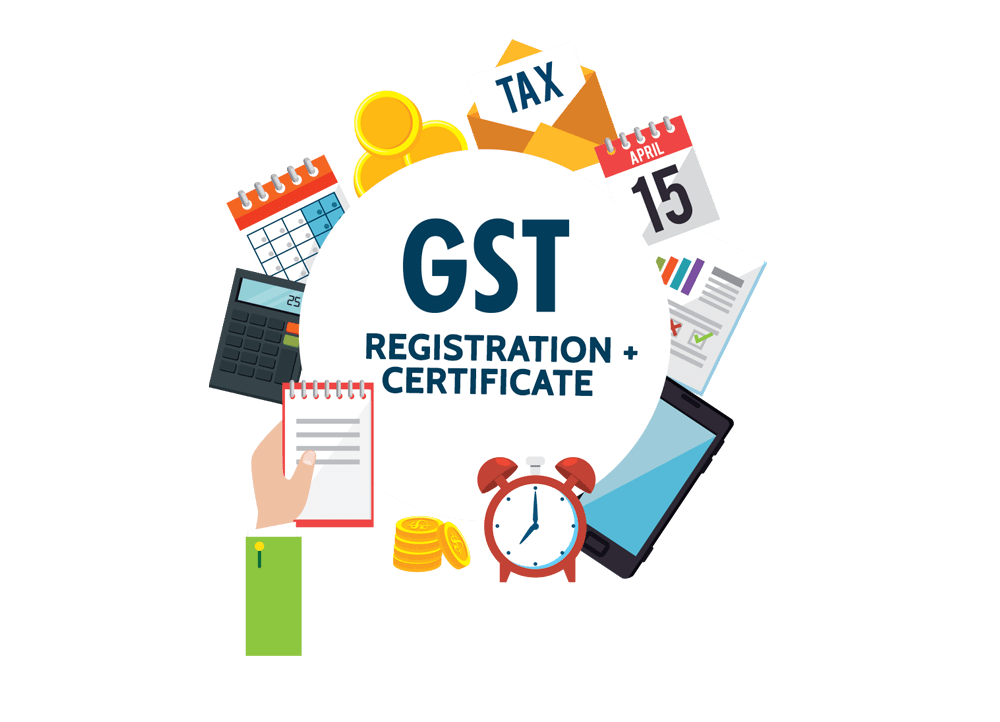Comprehending the Perks of Singapore GST Registration for SMEs
Comprehending the Perks of Singapore GST Registration for SMEs
Blog Article
Optimizing Tax Effectiveness: Expert Tips on Navigating the GST Registration Maze for Small Companies
Browsing the intricate landscape of Product and Provider Tax (GST) enrollment can be a labyrinthine task for tiny companies aiming to maximize their tax obligation effectiveness. In this conversation, we will check out expert insights and actionable suggestions that can empower little businesses to navigate the GST enrollment puzzle efficiently and maximize their tax obligation efficiency.
Qualification Standards
Qualification needs for Small Service GST Registration include details criteria that services have to fulfill to conform with tax obligation laws. To receive GST registration, a service needs to have a yearly turn over exceeding the threshold set by the tax authorities, which varies by country. Furthermore, organizations involved in inter-state supply of goods or services, or those offering products online, might be required to sign up for GST, irrespective of their turn over. It is essential for businesses to precisely determine their eligibility based on these turnover thresholds to avoid charges for non-compliance. Singapore GST Registration.

Documentation Demands
The needed documentation typically consists of evidence of organization enrollment or unification, address and identity evidence of the service owner, photographs, financial institution account information, and evidence of the primary area of service. Furthermore, businesses require to give information of their service activities, consisting of the solutions or products supplied.
Keeping all required paperwork organized and conveniently accessible can improve the enrollment procedure and help businesses abide with the demands effectively. Meticulous focus to information and adherence to the documentation guidelines are crucial for an effective GST registration procedure for little organizations.
Timing Considerations
Thinking about the necessary documents demands have actually been diligently resolved, the next essential facet for small companies starting the GST enrollment process is the critical administration of timing considerations. Timing plays a crucial function in GST registration, influencing not only compliance however also economic facets of the business. Small companies need to carefully plan the timing of their GST registration to make the most of benefits and lessen prospective threats.

In addition, organizations should align the timing of their GST enrollment with their operational preparedness. Sufficient prep work, such as updating accountancy systems and training team, is necessary to seamlessly incorporate GST demands into daily procedures. By tactically taking care of timing considerations, small organizations can navigate the GST enrollment procedure successfully and maximize their tax obligation performance.
Enrollment Refine Tips
Efficiently browsing the GST enrollment procedure calls for small companies to execute aggressive and tactical registration process ideas. One important idea is to guarantee all essential papers are conveniently available prior to starting the enrollment procedure. This consists of business enrollment papers, evidence of address, bank declarations, and recognition this evidence of business proprietors. Confirming the accuracy of the info offered is similarly important to protect against rejections or delays.
Additionally, comprehending the limits and demands for GST registration based upon the specific state or territory where the service runs is necessary. Some states have different turn over thresholds that trigger obligatory enrollment, so being notified about these limits can aid businesses plan ahead.
An additional important pointer is to think about looking for professional help from accountants or tax consultants that focus on GST enrollment. Their competence can simplify the process, minimize mistakes, and guarantee conformity with all laws.
Compliance Finest Practices
Tiny services have to focus on conformity to stay clear of penalties and maintain a great standing with tax obligation authorities. Little service owners must consistently evaluate government standards and seek expert guidance if needed to guarantee they are fulfilling all requirements. By incorporating these conformity finest methods right into their procedures, little businesses can navigate the intricacies of GST enrollment with self-confidence and effectiveness.
Verdict
Finally, small organizations can navigate the GST enrollment labyrinth by guaranteeing they satisfy eligibility requirements, collect needed documentation, consider timing ramifications, adhere to registration process tips, and follow conformity best practices. By making best use of tax obligation efficiency via appropriate GST registration, companies can enhance their economic management and operations.
Browsing the detailed go landscape of Product and Solutions Tax (GST) enrollment can be a labyrinthine task for tiny services intending to optimize their tax obligation efficiency.Eligibility needs for Small Company GST Enrollment encompass specific requirements that organizations should meet to comply with tax obligation guidelines. The needed paperwork commonly includes proof of business enrollment or address, unification and identity proofs of the service proprietor, visit this site pictures, bank account information, and evidence of the primary place of company. Furthermore, companies need to supply details of their organization activities, including the goods or solutions provided.Successfully navigating the GST registration process requires tiny services to apply positive and calculated registration procedure suggestions.
Report this page